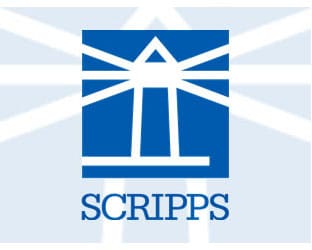 The music industry is still being hammered by sites that allow illegal downloading of music. It says that Google has promised to limit access to these sites, but after six months there is precious little evidence that it has done anything meaningful.
The music industry is still being hammered by sites that allow illegal downloading of music. It says that Google has promised to limit access to these sites, but after six months there is precious little evidence that it has done anything meaningful.
The Recording Industry Association of America stated its primary takeaway: “Six months later, we have found no evidence that Google’s policy has had a demonstrable impact on demoting sites with large amounts of piracy. These sites consistently appear at the top of Google’s search results for popular songs or artists.”
It listed its key points from a study of the problem:
* Over the six-month period, Google received notices for tens of millions of copyright removal requests concerning various sites, including multiple repeat notices of infringement of the same content on the same site;
* The sites we analyzed, all of which were serial infringers per Google’s Copyright Transparency Report, were not demoted in any significant way in the search results and still managed to appear on page 1 of the search results over 98% of the time in the searches conducted;
* In fact, these sites consistently showed up in 3 to 5 of the top 10 search results
“We recognize and appreciate that Google has undertaken some positive steps to address links to illegal music on its network,” said Steven M. Marks, EVP & General Counsel, RIAA. “Unfortunately, our initial analysis concludes that so far Google’s pledge six months ago to demote pirate sites remains unfulfilled. Searches for popular music continue to yield results that emphasize illegal sites at the expense of legitimate services, which are often relegated to later pages. And Google’s auto-complete function continues to lead users to many of those same illicit sites.”
Marks concluded, “We want fans to easily and quickly find the services that are safe, secure and reward the artists that create the music we all love. Research shows that users trust search engines like Google to lead them to legitimate sites when searching for music, yet Google’s demotion program is not working. We encourage Google to immediately make the necessary changes so its pledge becomes a reality, and we stand ready to work with Google in that endeavor.”
RBR-TVBR observation: The music industry was one of the first to get creamed by the internet. When peer-to-peer trading of recorded music first began taking place – remember a little thing called Napster? – the recording industry’s response was, well, there really wasn’t a response until it was too late, was there? Not until its entire business model had collapsed.
It did finally get Napster shut down in its old form, started adding download income into its mix, and suing average citizens for outrageous sums for a handful of illegal downloads.
It also sought replacement revenue anywhere and everywhere, and that meant attacking the age-old symbiotic relationship it had with radio stations – free music for free promotion. The battle raged for a bit, and is still percolating.
But the real problem is still illegal downloads, is it not? Radio stations clearly help drive downloads – but can’t help determine from whence they come.
This writer can honestly say that all online music acquisition has been purchased fair and square out of belief that the musicians do need and deserve to be compensated for their work.
RIAA is right to try to shut down websites that allow piracy to occur – and it should focus on that while thanking radio for continuing to provide invaluable advertising, marketing and promotion for all kinds of music, free of charge.






After the way the RIAA put the screws to online radio and to a lesser extent terrestrial radio streams i find it funny as anything that they’ve getting served by online pirates.
Comments are closed.